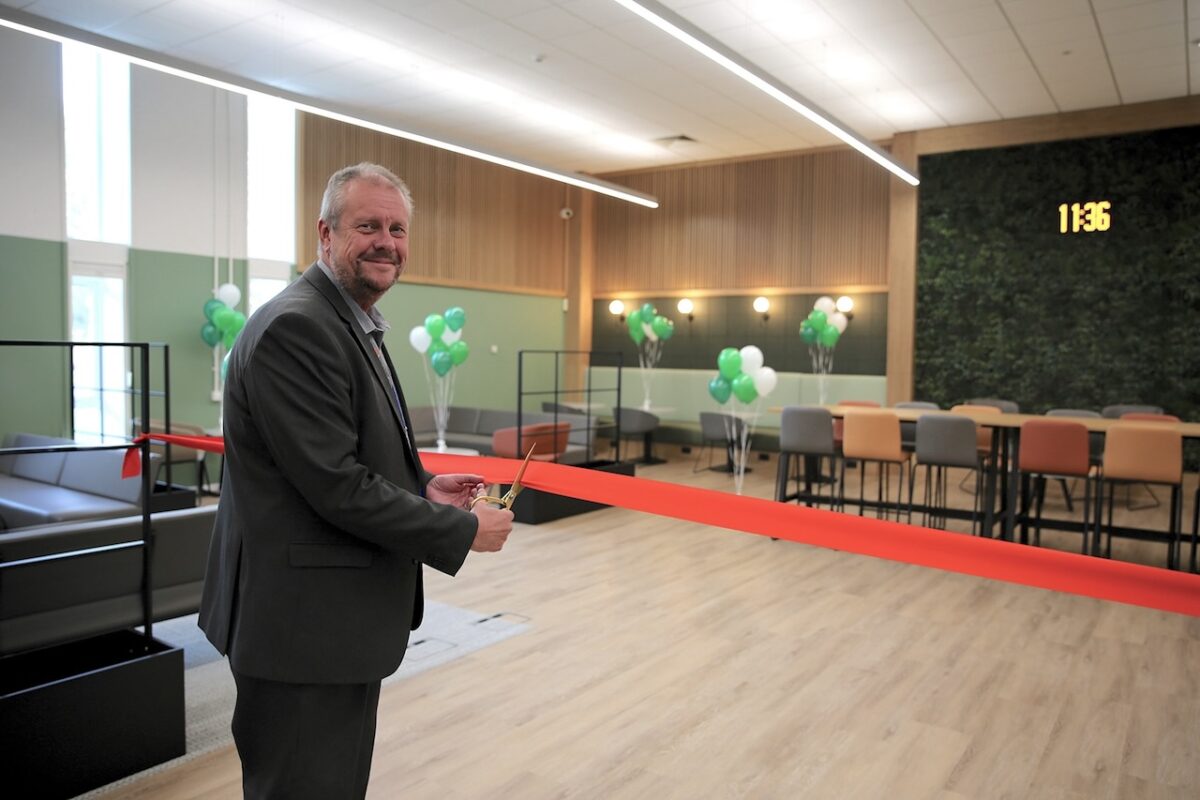Flagship summer schools programme opens today to help students recover lost learning

£200 million funding for summer school and activities
- Summer schools will be targeted at children who suffered the most disruption during the last year
- Part of government commitment to help young people recover lost learning and build back better from the pandemic
Schools in England can now register to offer a summer school to help children recover learning they have lost during the pandemic.
Schools will be encouraged to bid for a share of £200 million in government funding to design summer schools for students who have experienced the most disruption.
Incoming Year 7 students will predominantly be encouraged to get involved, to help them navigate the important transition between primary and secondary school following a year of disrupted learning.
Summer schools will include a variety of activities from group activities such as sports to mental health support and academic catch up such as maths and English lessons.
Summer schools are one part of £1.7 billion already invested by the government in ambitious catch-up activity over the next year, including high quality tutoring.
A longer-term plan to help all students recover from the impact of the pandemic is currently under development, led by Education Recovery Commissioner Sir Kevan Collins.
Education Secretary Gavin Williamson said:
“Our resilient kids are now back in the classroom, seeing their friends and having all of the benefits that being in school brings. But we know that time out of school necessary to control the pandemic has had an impact on the learning of pupils right across the country. Additional support this summer – on top of the National Tutoring programme and additional funding for schools – will help boost learning and wellbeing plus help prepare those pupils about to start secondary schools.
“We’re supporting schools to plan their summer provision as early as possible, and making sure parents and pupils themselves have the notice they need to plan their own summers.
“I am confident that this summer of enrichment and engagement in academic work will be a great success, tailored to local needs by the wonderful heads and teachers who best understand the needs of their students.”
NAHT comments on government ‘summer school’ programme
Today (Mon 26 Apr), the government has opened up the process for schools to ‘bid’ for a share of a £200m fund to provide ‘summer schools’ in August.
James Bowen, director of policy at school leaders’ union NAHT, said:
“Secondary schools will be thinking carefully about the merits of running a short summer school for students. When it comes to their incoming Year 7, they will take into account their already well-established arrangements for supporting transition from primary schools. What we must not lose sight of is that these students still have seven years of education ahead of them – it is those years, rather than an additional week or two that will have the biggest impact.
“Some schools might feel that a summer school would benefit other groups of students more and the government’s guidance does contain that flexibility but schools will need to carefully consider the likely appetite from students and their families for such a scheme.”
Nayeer Afzal, Programme Director at Learning Hive, provides her thoughts on this announcement:
“For summer schools to be a success, they must focus closely on the emotional wellbeing of pupils, while avoiding placing too much pressure on already overworked teachers. The government’s rhetoric so far around summer schools and helping pupils catch up has been on the punitive side, with one example being the Education Secretary announcing plans for “behaviour hubs” to tackle increasing disciplinary issues with some children. While such measures are well-meaning, they approach challenges from a negative standpoint.
“Rather there needs to be a better balance struck here. Teachers’ workloads have become even heavier since the pandemic started, with the need to juggle both in-class and remote learning being just one example of this. At a time of such fragile morale, we should be aiming to alleviate the burden on teachers and focus on their wellbeing – not saddle them with a strict, regimented approach to catch-up learning. Teachers shouldn’t be expected to shoulder all of the workload: summer schools should be managed by teaching staff and qualified experts working in tandem with one another, including tutoring providers accustomed to the demands of out-of-term learning.
“Summer schools might be a necessity, but there’s no need for them to be a drain on exhausted teachers and the pupils in their care. High academic standards are paramount, but these can only be maintained if all parties are happy, engaged and motivated to achieve their full potential.”
Schools can sign up via an online form on GOV.uk to confirm their plans, with flexibility for schools to target funding at other groups of students dependent on their local circumstances.
Parents should expect to hear from their schools over the course of May and June as they progress with their planning, but it remains at the discretion of schools which students they target their summer school offer towards.
The government anticipates that a two week summer school will give students an opportunity to make up some lost academic ground before they start a new school.
Summer schools should also offer an opportunity for schools to support students’ wellbeing, and schools should include activities such as team games, music, drama or sports activities, in their plans.
Schools will need to determine how best to use the funding and staff the scheme to ensure that the extra time is used effectively.
Guidance for secondary schools to help progress plans for summer schools
30 March 2021: Young people in England will benefit from a series of summer activities and academic opportunities targeted at those who have suffered the most disruption to their education as a result of the pandemic.
The government has published new guidance for secondary schools to help progress plans for summer schools once they return from the Easter break, using the £200 million funding announced in February.
Summer schools will help pupils who have experienced the most disruption as a result of the pandemic. Guidance will provide advice ranging from academic support to sports and activities, mental health and wellbeing advice, and guidance for accessing premises.
Alongside this, the government will also work with a national supply contractor to give extra support for councils to deliver the Government’s expanded Holiday Activities and Food programme (HAF), who will help to scale up plans for the summer, building on the foundations laid by councils, sporting organisations, charities and the voluntary sector when it kicks off during the Easter holidays from next week.
Following last summer’s HAF programme, which supported around 50,000 children across 17 local authorities, the programme will launch in every council across the country next week in line with remaining national restrictions, targeted primarily at those who are eligible for free school meals.
Education Secretary Gavin Williamson said:
“I know many students, parents, carers and teachers are in equal measures anxious and excited about what this summer might bring.
“That’s why we’re providing clarity, issuing guidance as early as possible, so we can make the most of these opportunities. It will give local authorities, parents, carers and teachers the notice they need so they can make their summer plans to prepare large numbers of incoming year 7s for their first experience of secondary school, and to make sure the most disadvantaged children can make the most of the school holidays through the Holiday Activities and Food programme.
“I am confident this summer of enrichment and engagement in academic work will be a great success, tailored to local circumstances by their local authorities and also the wonderful heads and teachers who best understand the needs of their students.”
Kevin Courtney, Joint General Secretary of the National Education Union, said:
“It is clear that children and young people are going to need access to a range of interesting and motivating activities during this summer break, with as much of it as possible outside and factoring in exercise. We ignore this at our peril. Families will book activities which are motivating for their child or teenager and which young people want to take part in during the holiday. The goal must surely be to support pupils’ learning and wellbeing in fun and creative ways, and to give young people a chance to reconnect with their peers in a structured and supportive environment.
“We urge the Government to give local authorities the funding and support to create teams who can co-ordinate the summer provision across the whole local authority area. This is the best approach. Schools should not be expected to co-ordinate and plan these summer placements.
“There is welcome clarity in today’s advice that schools can adopt the plans which best suit their situation. Many secondaries already allow sports and other clubs to use their premises during the holidays and run extended provision outside school hours.
“Year 7 pupils will have a complicated transition this autumn, so it is sensible to pay particular attention to this year group. Government needs to help local authorities to be in a position to be able to support students in their area, and to co-ordinate schemes and provision using libraries, adventure playgrounds and youth clubs. Disadvantaged young people should be a priority.
“We welcome the DfE making crystal clear that any teachers who volunteer to take part in summer provision are eligible for payment and that supply staff and support staff must be paid. It is also right that heads, teachers and support staff who volunteer to take part in summer provision are paid for this additional work. The NEU believes that many supply staff – especially those who have faced shortages of work during the last year– would be keen to lend their expertise to local schemes and it is right too that they receive proper pay.
“Everyone in public services has worked flat out this year, and school staff provide a huge amount of emotional as well as academic support to their students. Schools that opt to plan individual summer schools will need to keep staff wellbeing squarely in their sights to make sure staff overwork and burnout is avoided.”
The Department for Education is also publishingthe Conditions of Grant for schools and local authorities on how to use their Pupil Premium funding, expected to increase to £2.5 billion in total next year.
From September 2021, schools will be asked to show how their spending decisions are backed by evidence, and will need to publish an annual pupil premium strategy to make sure funding is targeted towards the most disadvantaged pupils.
Schools will be asked to sign up to run summer schools by the end of April, and confirm their plans in June. They will have the flexibility to target the funding to whoever they think could benefit most.
The government continues to encourage schools to consider summer school provision primarily for pupils making the transition into year 7, as this can be a challenging time for some students. A two week summer school can give pupils the opportunity to kick start any education recovery before they start a new school, as well as supporting their wellbeing through sports and activities.
Guidance is also available for local authorities to help them make the most of their HAF clubs during the school holidays. While Easter holiday club provision has naturally been affected by the ongoing pandemic, many areas will be offering some valuable face-to-face provision, and other areas are supporting families remotely. This Easter provision is an important milestone as local authorities prepare for their major delivery of the programme this summer. Wider support for vulnerable families is also available from the £229 million Covid Winter Grant Scheme, which has been recently expanded to cover the Easter period.
Schools will shortly be able to access their funding allocations, set at a rate of £597 per pupil for two weeks’ full attendance, and an average of half of their incoming year 7 cohort participating. A group of 15 pupils, for example, would be funded with just under £9,000. Funding will be set at an increased rate of £1,791 for two weeks’ full attendance for pupils in special schools.
For summer provision, schools will be asked to sign up by the end of April and confirm their plans in June, with flexibility for schools to target their funding at the groups of students they consider best for their local circumstances. There will be an opportunity for some schools to offer a larger summer school, with a re-allocation process to run after schools have confirmed the scale of their summer school in June.
Parents should expect to hear from their schools over the course of May and June as they progress with their planning, but it remains at the discretion of schools which students they target their summer school offer towards.
Guidance available to schools includes case studies and examples of ‘what works well’ in terms of summer provision, funding and logistics. Further support is available from partner organisations to support schools in designing their academic and enrichment offer.
The Department for Education is also publishing the Conditions of Grant for schools and local authorities on how to use their Pupil Premium funding, expected to increase to £2.5 billion in total next year.
- From September 2021, schools will be asked to show how their spending decisions are backed by evidence. Schools will have to make reference to sources including the Education Endowment Foundation’s toolkit.
- Schools should ensure the activities being funded by the Pupil Premium support the quality of teaching, such as through staff professional development, provide targeted academic support such as tutoring, and tackle non-academic barriers to success in school such as attendance, behaviour and social or emotional support.
Details of the summer schools programme for secondary schools including funding, requirements for running a summer school and best practice evidence.
Documents
Summer schools guidance
The summer schools programme is open to secondary schools. The aim of the programme is to deliver a short summer school offering a blend of academic education and enrichment activities.
Funding will be made available to:
- state-funded secondary and special schools
- non-maintained special schools
- pupil referral units
- alternative provision for any pupils whose education was funded by the local authority outside of state place funded schools, including:
- independent schools
- non-maintained special schools
- other providers











Responses